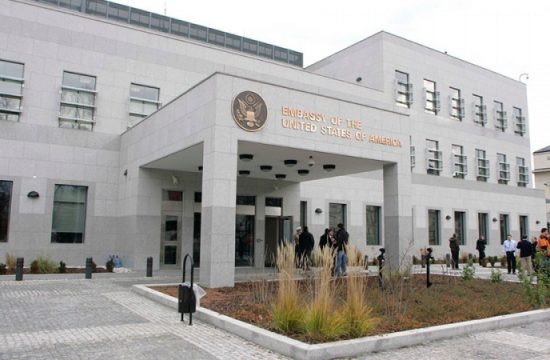
Since the Second World War -- spanning 14 US presidents, Republican and Democratic -- the occupant of the Oval Office has been referred to as "the leader of the free world." Until now. Over his 18 months in office, Trump has surrendered that mantle without a mandate to do so.
CNN's John Avlon says Trump's impulse is to echo Russian President Vladimir Putin's talking points and advance his agenda, even as elements of his administration attempt to push back to protect longstanding American interests.
Time and again the world has witnessed what journalist Luke Harding describes in his book “Collusion” as Trump's “weirdly deferential behaviour toward Putin — his singular reluctance to criticize, his boundless willingness to appease, his desire for face time.”
This past week offered new lows in this shameful dance on the world stage, capped by what Anderson Cooper diagnosed as a “disgraceful” performance at Helsinki, in which Trump was more critical of Democrats and his own Justice Department than of Putin or Russia.
In the days before his largely unsupervised chat with Putin in Helsinki, Trump attacked American NATO allies at a Belgian summit, suggesting the US could “go our own way.” He nonsensically blamed President Barack Obama for Russia's invasion of Crimea, insulted German Chancellor Angela Merkel, undercut embattled British Prime Minister Theresa May over Brexit and described the European Union as a “foe” of the United States.
After his own Justice Department indicted 12 more Russian agents for interfering in his favour in the 2016 election, Trump again attacked the investigation as a “rigged witch hunt” and blamed American “foolishness and stupidity” for our bad relationship with Russia. The Russian Foreign Ministry tweeted with cold approval: “We agree.”
This litany of insults is surreal and not a little bit sinister. But we cannot say we were not warned. After all, the 2017 US Intelligence Assessment on Russian activities and intentions in the 2016 elections made it clear that “the Kremlin sought to advance its longstanding desire to undermine the US-led liberal democratic order, the promotion of which Putin and other senior Russian leaders view as a threat to Russia and Putin's regime.”
This Russian desire has been met with unexpected ardour from the American President. This love-that-dare-not-speak-its-name was again apparent at the press conference after the Helsinki meeting, when Trump went off-teleprompter to echo his post-Charlottesville script, declaring “both countries accountable” for US-Russia tensions and again denied the validity of the Mueller investigation, calling it baseless and “ridiculous.”
Trump took the unprecedented step of taking the word of an autocratic leader of a hostile foreign power over his own Director of National Intelligence, stating that he did not see “any reason why it would be” Russia who hacked the DNC servers. This was music to Putin's ears, who grinned like a cat digesting a canary, while stating, “we have to be guided by facts and not by rumours.”
The most innocent explanation for Trump's determined outbursts — and his disconnect from broader bipartisan American policy interests — is that he has isolationist instincts and admires authoritarian leaders. But that marks something much more dangerous than simply a disruption of the status quo.
Some might ask whether Trump's imagined new world order really represents a threat to American values. Only if you believe in individual rights, civil liberties and the strength of multi-lateral liberal democratic coalitions as a bulwark against ethno-nationalist autocracy. This is not a president who cares about advancing a “freedom agenda.”
Senate Republicans willing to stand up to the President's worst instincts are an endangered species: John McCain is battling brain cancer; Jeff Flake and Bob Corker are not running for re-election; Lindsey Graham and Marco Rubio are willing to pipe up when the insults to the Reagan Legacy are particularly egregious and only Ben Sasse is a consistent Senate critic from a rising generation.
Many others recognize the danger but are unwilling to take on their base by criticizing the President in public. Whatever short-term political expediency they gain will represent a lasting stain on their name. Helsinki will be remembered, in the words of John King, as “the surrender summit.”
CNN concludes that the defining fight of our time will be to defend diverse liberal democracy at home and abroad — and we will have to do it without the help of this American President.



